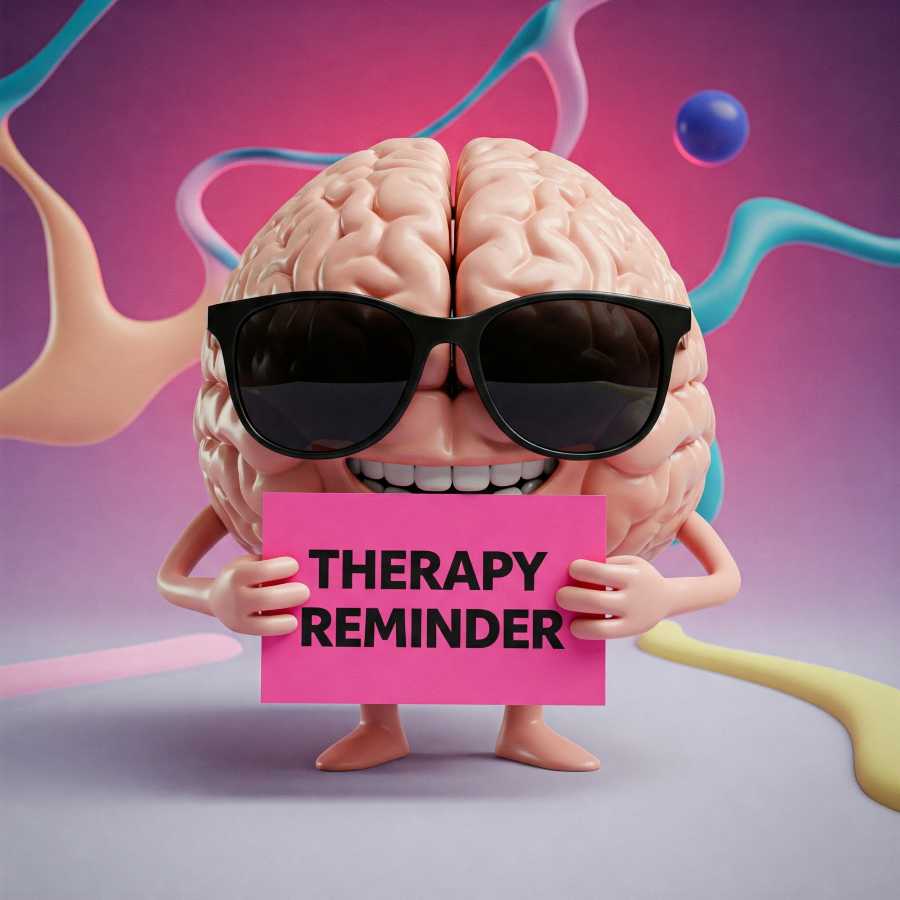Depression Grips the Globe, Mexican Expert Reveals Alarming Trends
Depression affects 280M+ globally, spiking among young women. Mexico sees a 16.3% rise in cases. Expert urges breaking stigma, seeking help and recognizing hormonal factors in women. COVID-19 worsened child/adolescent anxiety. It's not insanity, it's self-care.

A staggering 280 MILLION people across the globe are battling the black dog of depression, health chiefs have warned. And while the debilitating condition is known to disproportionately affect women, alarming new data reveals that young people and the elderly are also increasingly falling victim to this silent killer.
The World Health Organization (WHO) has sounded the alarm, revealing that more than four percent of the world's population is currently living with depression, a mental disorder marked by decreased mood, persistent sadness, and crippling difficulty concentrating.
In Mexico, the situation is equally bleak, with government figures showing a staggering 3.6 million adults grappling with the condition. Worryingly, one percent of these cases are classified as severe, leaving sufferers facing a form of disability that can devastate every aspect of their lives, even causing physical symptoms like unexplained pain and muscle stiffness.
Now, a leading expert has laid bare the devastating impact of this widespread illness. Clara Haydee Solís Ponce, a professor and family therapist at the Faculty of Higher Studies (FES) Zaragoza at UNAM, has warned that depression is complex "because it impacts different areas of personal life: family, work, education, and social life."
And the crisis appears to be deepening. Shocking figures from the Sixth Government Report of Mexico City reveal a dramatic surge in cases in the first seven months of 2024. According to Solís Ponce, cases of depression soared by a terrifying "16.3 percent, reaching 14,248 visits to health services."
Speaking out on World Day Against Depression, observed annually on January 13th to raise crucial awareness, the expert highlighted the sheer scale of the problem, stating that globally, a quarter of all visits to health services in this area are linked to this debilitating disorder.
Solís Ponce, who is also responsible for the Community Psychological Care Program at FES Zaragoza, explained that depression is not simply a case of feeling a bit down. It is a "multifactorial and invasive" condition that can be triggered by a complex web of "social, psychological, and biological factors." Crucially, she stressed that it can be identified when symptoms stubbornly "tend to persist for more than two weeks."
However, the expert was keen to differentiate between normal emotional responses and the more serious condition of depression. "These are situations that could cause a person to have a sad response, but they don't necessarily turn into depression," she clarified, referring to common life stressors such as failing an exam, relationship breakdowns, or job loss.
Sharing insights from her work at the FES Zaragoza and the Tamaulipas University Health Care Clinic, Solís Ponce revealed that "Regarding the population I serve at this clinic, women between the ages of 20 and 35 are the group that most requests services, but they are also the population with the highest adherence to treatment." This highlights the crucial role women play in seeking help, but also underscores their vulnerability to the condition.
The COVID-19 pandemic has also had a profound impact on mental health, particularly among younger generations. Solís Ponce noted that "Regarding children and adolescents, based on her experience, the situation changed with the COVID-19 pandemic; that is, before this event, this center treated behavioral difficulties and challenging disorders such as bullying. However, subsequently, clinical symptoms of depression and anxiety began to increase, starting at the age of eight." This alarming trend suggests a generation struggling to cope in the aftermath of the global health crisis.
But there is a glimmer of hope. The health crisis has "highlighted the importance of mental health and has led to a greater number of people seeking out the clinic, including an increasing number of men and older adults," according to the university student. This indicates a growing awareness and a willingness to seek help across different demographics.
Solís Ponce outlined the support available, explaining that FES Zaragoza runs a "Community Psychological Care Program that provides care to university students," and also has "seven other university clinics, six in the municipality of Nezahualcóyotl and one in Los Reyes La Paz, for the general population and the university community." They also offer specialized residency programs in Family Therapy and Adolescent Therapy.
In a bid to empower young people, particularly university students, therapy sessions often focus on building resilience. They are taught that "sometimes, when faced with unexpected situations that are contrary to their expectations, people have a low tolerance for frustration. Sometimes, they feel incapable of facing life's challenges, or they believe they don't have the necessary tools to do so, and we begin to develop these symptoms of indifference, apathy, and lack of initiative. This allows them to understand what is happening to them," Solís Ponce explained.
The expert is emphatic in her message: "it is necessary for the population to know that depression is a condition that could occur at some point in our lives; it is not a matter of attitude, but a reality of mental health, and not a sign of insanity." This crucial message aims to break down the harmful stigma that often prevents people from seeking the help they desperately need.
Dispelling another common misconception, Solís Ponce stressed that "drug treatment does not make them dependent; many people avoid mental health services because they believe they will be prescribed medication. In reality, it is the psychiatric specialist who determines whether it is necessary and at what dosage."
Addressing the higher prevalence of depression in women, she pointed to the potential role of hormones, stating, "Considering that women are the ones who most often seek mental health services, we can't ignore the hormonal issue. We have a specific and non-negotiable relationship with nature that directly influences our moods and our regulators. This is also an organic factor that we must rule out; that is, we must ensure there is no hormonal imbalance that can cause symptoms similar to those of depression."
In a bid to promote better mental health, particularly among young people, Solís Ponce emphasized the importance of a strong family unit and a sense of purpose. "At home, it is important for parents to establish this system with their children and maintain it. In addition, they should have some self-respecting activity, such as making the bed, picking up clothes, tidying their room, etc."
She explained that "These and other functions, however basic they may be, make us feel that our presence at home is essential and give us a sense of satisfaction, motivation, and self-confidence." Furthermore, she advised having "medium- and long-term goals to give meaning to what they do."
Solís Ponce urged anyone struggling to seek professional help, stating, "Let's start breaking the stigma that seeking mental health services is for 'crazy' people; on the contrary, seeing a psychologist is part of our self-care and self-love."
In a final message of empowerment, she concluded, "We must take stock of our personal goals and projects in life, accepting that we are not determined by days, climates, years, or zodiac signs, but that we build our lives with small, everyday actions."




